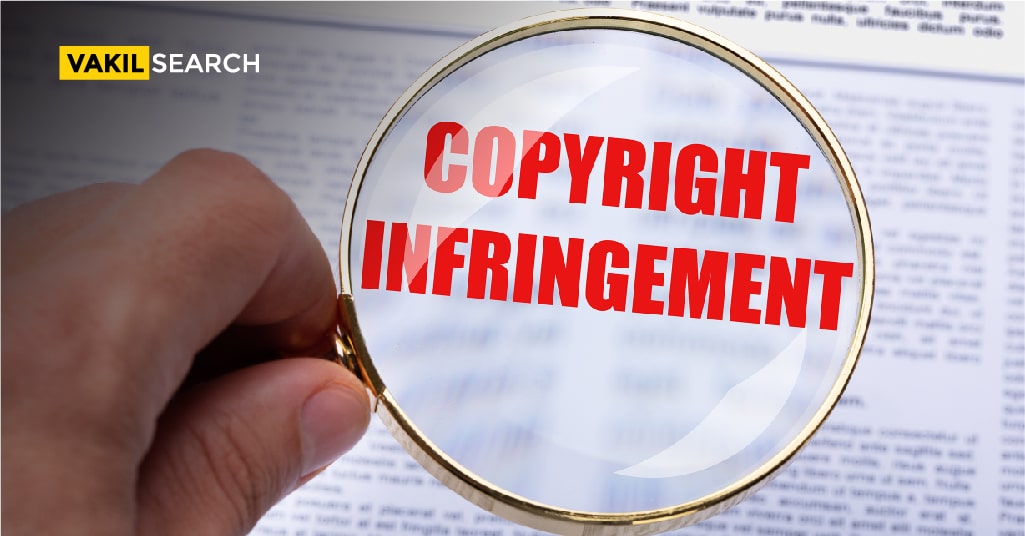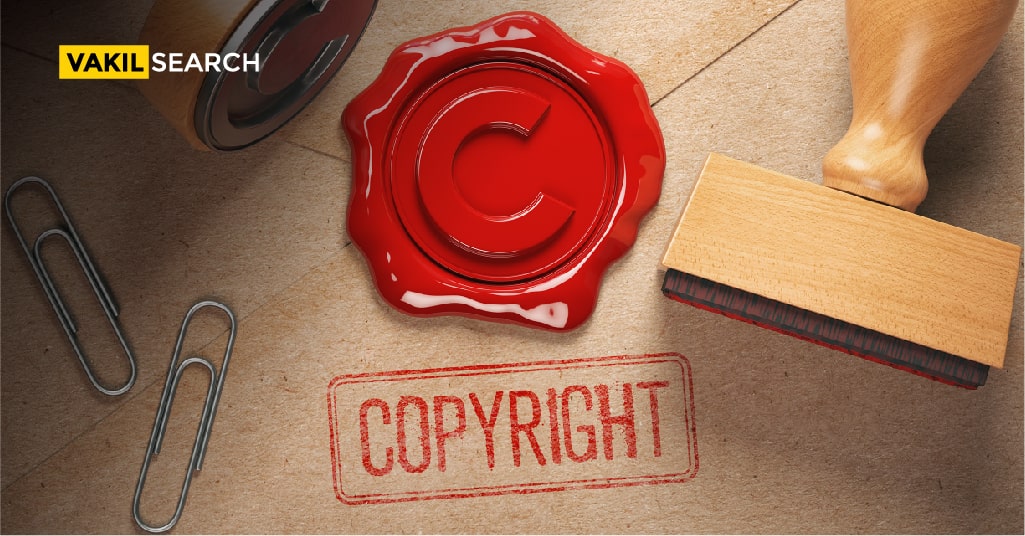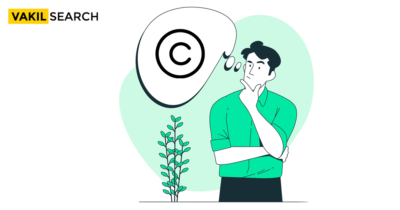Just imagine, you have put a lot of effort into writing a novel or creating a music track and someone accesses it without your permission, what would you do? Will you let that person use it? Or will you seek remedies for that copyright work infringement?
Remedies for copyright infringement has become a serious issue these days. People these days are more inclined to copy a work rather than create it. But, not to worry, the law certainly provides protection from such infringement. Want to know how? Scroll down for more.
What is Copyright Infringement?
Infringement transpires when a copyright violator utilises, reproduces, distributes, showcases, or executes copyrighted content without obtaining approval from the creator of the material. This encompasses the unauthorised use of a work in its entirety or in part, as well as the development of derivative works derived from the original.
Instances of copyright infringement involve:
- Illegally reproducing or disseminating copyrighted music, movies, or literature without the consent of the content creator
- Unauthorised utilisation of copyrighted images or artwork without proper attribution or permission
- Posting copyrighted material, like articles or photographs, on a website without obtaining the necessary permissions
- Crafting a new creation based on an existing copyrighted work without proper authorisation, such as adapting a book into a movie without acquiring the requisite rights
- Publicly performing copyrighted works without the owner’s permission, for instance, presenting a song at a concert without the approval of the song’s proprietor.
Copyright infringement can lead to legal consequences initiated by the copyright holder, which may encompass lawsuits for damages and injunctions to cease the unauthorised activity. It is imperative to honour the rights of content creators and seek permission before utilising or disseminating copyrighted materials.
Remedies for Infringement of Copyright in India
There are three main types of remedies available to copyright owners for infringement: civil, criminal, and administrative.
Civil Remedies
Interlocutory Injunctions
- A powerful tool to immediately halt ongoing harm from infringement
- Allows the content creator time to pursue other remedies, like seeking monetary damages
- Requirements include a prima facie case, balance of convenience, and proof of irreparable harm.
Anton Piller Order
- Allows entry into the defendant’s property for evidence gathering in copyright violation cases
- Requires a valid cause of action, demonstrated damages, and specific evidence.
Mareva Injunction
-
-
- Used when there’s suspicion of interference with a court order
- Orders the defendant to place assets under the court’s control.
-
Pecuniary Damages
-
-
- Three options for compensation: account of profits, compensatory damages, and conversion damages
-
Norwich Pharmacal Order
-
- Allows obtaining information from someone with relevant data, even if they resist sharing.
Criminal Remedies
Imprisonment
-
-
- Ranges from a minimum of 6 months to a maximum of 3 years.
-
Fine
-
- Minimum of 50,000 and up to 2,00,000.
Seizure:
-
- Infringing goods can be searched, seized, and delivered to the copyright owner.
Administrative Remedies
- The court can provide remedies for copyright infringement, including injunctions, compensation, and the delivery or destruction of infringing copies of the work
- It’s crucial to note that the options for protecting architectural designs may be limited under copyright law.
Types of Infringement
There are two primary forms of copyright infringement: primary and secondary. Primary infringement involves directly violating a copyright owner’s exclusive rights, such as reproducing, distributing, displaying, or performing copyrighted work without authorisation.
On the other hand, secondary infringement occurs when someone aids or enables primary infringement. This includes knowingly providing tools or software for others to infringe on copyright, as well as inducing or encouraging others to violate ownership rights.
Both primary and secondary infringement can lead to legal action, including damages and injunctions. It is crucial to respect content creators’ rights and seek permission before using or distributing copyrighted works.
Criminal Remedies | Copyright Infringement
The following criminal remedies are available to the plaintiff-owner of the copyrighted work:
- Imprisonment for six months which may have extention up to three years
- Fine- not less than ₹50,000 but not exceeding ₹2,00,000
- Confiscation of the goods including the equipment used to create those infringed copies of the work
- Therefore, delivery of infringed copies of the work to the plaintiff.
These are the remedies by the court after verifying the facts and circumstances of the case. But, one thing to be noted here is that:
In case of infringement of the works relating to architecture, there are no remedies provided to the owner of the work. Therefore, the owner of the work cannot ask for
- The injunction to restrain the construction
- Demolition order
- Any other remedies
In case of groundless threat of legal proceedings- that is where any person who claims to be the owner of the work issues any circular or advertisement or threatens any other person with legal proceedings, then the declaratory suit can be initiated against such person, and in such suit obtain:
- Injunction against such threats
- Recover such damages if any sustained by such threats.
All you have to do is contact your lawyer file a suit in court and then sit back and relax. The court will provide you with appropriate remedies.
Copyright Infringement Cases in India
Case 1: Twentieth Century Fox vs. Sohail Maklai Entertainment Ltd.
Background:
- In 2010, Twentieth Century Fox accused the producers of ‘Knock Out’ of infringing the copyright of their film ‘Phone Booth’
- ‘Phone Booth’ creators filed a suit, alleging copyright infringement and seeking an injunction.
Court’s Decision:
- Bombay High Court ruled the ‘idea’ of a man held hostage in a telephone booth was novel and protected under copyright
- Similar scenes in both films indicated copyright infringement in ‘Knock Out’
- Sohail Maklai Entertainment settled by paying ₹1.25 crores to Fox Studios.
Case 2: Najma Heptulla vs. Orient Longman Ltd.
Background:
- Petitioner, legal heir of Maulana Abdul Kalam Azad, granted Prof. Humanyun Kabir the right to translate and narrate Azad’s work
- Plaintiff assigned copyright to the publisher, receiving 50% royalty for 30 years.
Court’s Decision:
- Court ruled the publisher had the right to publish the book after the term ended
- Plaintiff couldn’t prevent publication after the copyright term expired.
FAQs
What are the remedies available for copyright infringement in India?
- Civil Remedies: Include seeking injunctions to stop infringement, claiming damages, and obtaining Anton Piller orders for evidence gathering
- Criminal Remedies: Involve imprisonment, fines, and the seizure of infringing goods
- Administrative Remedies: Courts can provide various remedies, including injunctions and compensation.
How do you resolve copyright infringement?
Copyright infringement can be resolved through legal avenues, such as filing lawsuits to seek injunctions, damages, or delivery of infringing goods. Settlements between parties are also common.
What is the law for copyright infringement in India?
The Copyright Act of 1957 forms the legal framework for copyright infringement in India, outlining the rights of creators and the remedies available for violations.
What is the defense of copyright infringement in India?
Possible defenses include proving fair use, demonstrating valid licensing agreements, and establishing that the alleged infringement lacks substantial similarity to the original work.
Why is copyright infringement illegal?
Copyright infringement is illegal to protect the rights of creators, providing them with control over their creations and encouraging innovation by preventing unauthorised use.
What is an infringement of copyright and remedies in India?
Infringement occurs when someone uses copyrighted material without authorisation. Remedies involve legal actions, like obtaining interlocutory injunctions, Anton Piller orders, and seeking compensation.
What are the elements of copyright infringement?
Copyright infringement involves the unauthorised use of protected material, which violates the exclusive rights granted to the copyright holder, such as reproduction, distribution, or public performance.
How can copyright infringement be prevented?
Copyright infringement can be prevented by obtaining proper permissions, using licenses, and adhering to copyright laws. Awareness of intellectual property rights is crucial for creators and users alike.
What are the benefits of copyright protection?
Copyright protection benefits society by fostering creativity, providing economic incentives for creators, and contributing to cultural development through the preservation and dissemination of original works.
Also, Read:










